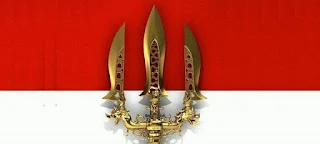Author: Malachi Edwin Vethamani
Maybe life has an innate plan to trap individuals. In the spring of youth, when hormones are raging high, we make hormonal-linked decisions that decide our futures. Somehow, hormones control rational thinking. The prefrontal cortex that controls analytical thinking is hijacked by impulses. We take the plunge dazed like a drunk monkey, like a prancing horse with blinkers, head on like sacrificial lambs, only to realise that we are in trouble deep when the dirt (or blood) hits the ceiling.
The path into this journey called love stirs all the primal suppressed emotions. It lights up so many intoxicating feel-good emotions within us that we never knew existed. We are swept off our feet, the world is a utopia, and we only see goodness in everything.
Maybe nature wants us to sow our seeds far and wide; perhaps it is just its way to improve the selection of traits. We lose interest. We get bored with the same routine and want freedom. We yearn to break taboos. We itch to push the boundaries of what is allowed than what is not.
What is this thing called love? Is it the constant high one gets at the sight of loved ones? Is it a societal duty that one performs to complete one's existence? This fulfilment of obligation is gifted with particular added delights, which are the carrot-dangling enticements to lure mankind.
Sometimes the nectar of love turns sour. Or perhaps, it meets an unplanned end. The spiralling falling out of love or losing love can be as devastating as the act of falling in. If a loss is already filled with avalanches of emotions, it must be made more difficult with the complexities of 21st-century love.
Prof Malachi Edwin Vethamani's latest collection of poems describes these emotions in simple yet meaningful words that leave a zing that lasts. Many of us will relate to some of the joy, frustrations, cynicism, the wisdoms of hindsight that all the experiences bring us. With the expert craft of a wordsmith, with economical use of vocabulary, he opens the door to a world of literary bliss. A good read.
This work is licensed under a Creative Commons Attribution 4.0 International License.








.jpeg)
















